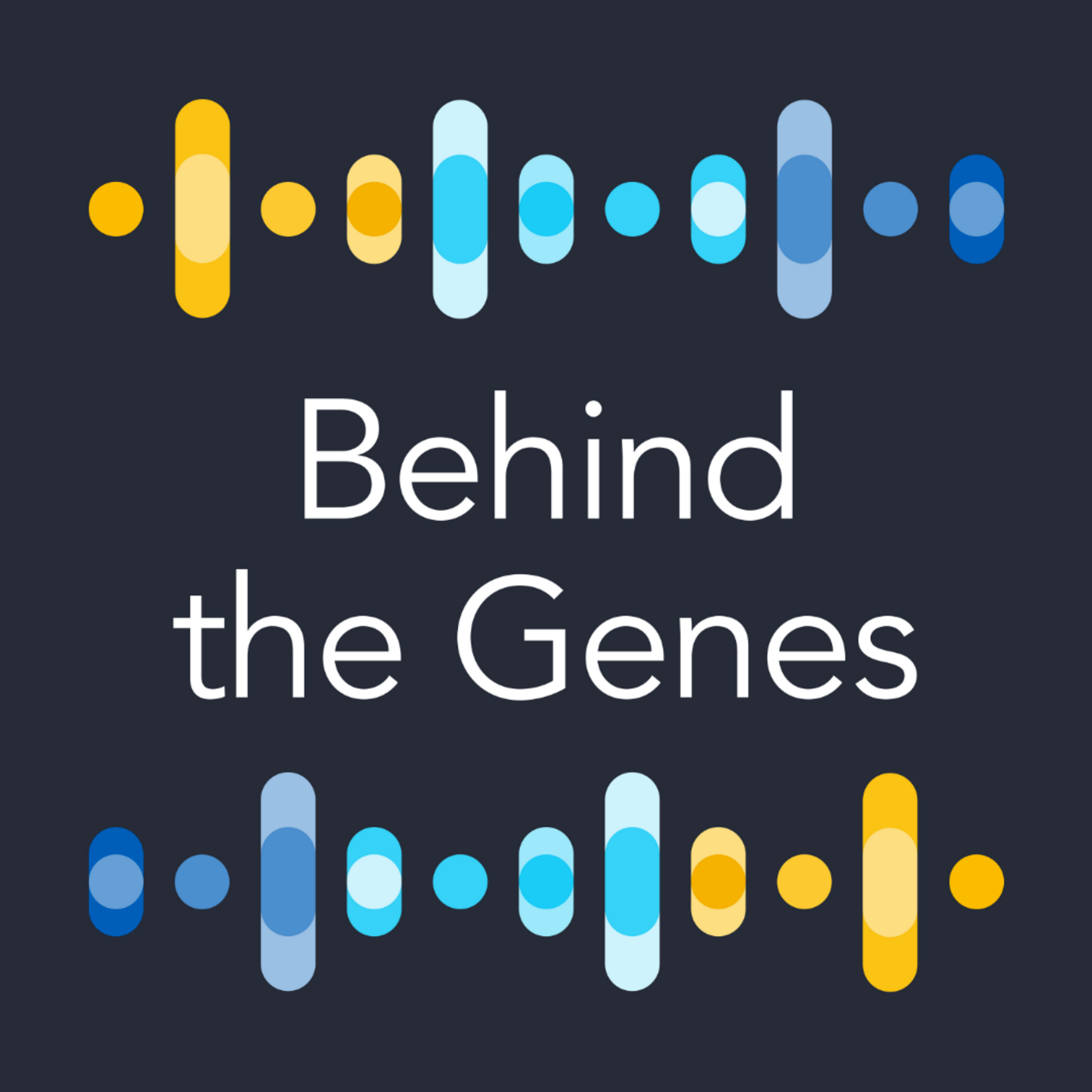Aman Ali, Anna Smith, Moestak Hussein and Naimah Callachand: How can we bridge the gap between diverse communities?
Description
In this episode of Behind the Genes, we explore the challenges diverse communities face in accessing genomic medicine. The discussion focuses on issues including language barriers, cultural differences, and socioeconomic disparities that hinder marginalised communities from accessing and benefitting from genomic medicine.
Our guests delve into successful strategies for engaging these communities in healthcare research and decision-making, highlighting the importance of building trust with groups that have historically been underserved or mistreated. The episode also emphasises the need for culturally sensitive communication from healthcare professionals and how meaningful community engagement can foster collaboration and trust within genomic research.
Our host, Naimah Callachand is joined by Aman Ali, a Community Ambassador at Genomics England and Community Engagement Manager at Our Future Health, Anna Smith, Child and Adolescent Integrative Psychotherapist at Rareminds, and Moestak Hussein who works for Bristol City Council in Public Health & Communities, working directly to build and imbed cohesion, inclusion and social justice approaches in her role.
"If we talk about co-production, true co-production is really creating a power balance where there’s no hierarchy. It’s an empowering model. It empowers both the researchers or the person that comes in, but also the communities that participate, and you all start on the same level, on the same outcomes and the same goals and aims that you want to achieve."
You can read the transcript below or download it here: https://www.genomicsengland.co.uk/assets/documents/Podcast-transcripts/Bridging-the-gap-between-diverse-communities.docx
Naimah: Welcome to Behind the Genes.
Aman: It’s really important to engage community leaders who are really well embedded within the communities, who are attached to organisations or institutions which are well trusted in the community as well, so that we can get a wider perspective of how communities feel about genomic medicine and accessing services that we want people to engage with.
Naimah: My name is Naimah Callachand and I’m Head of Product Engagement and Growth at Genomics England. On today’s episode, I’m going to be joined by Anna Smith, child and adolescent integrative psychotherapist for Rare Minds, Aman Ali, a community ambassador for Genomics England, and Moestak Hussein, community coordinator at Bristol City Council. Today, we’ll be discussing the disparities in access to genomic medicine amongst diverse communities. If you enjoy today’s episode, we’d love your support. Please like, share and rate us on wherever you listen to your podcasts.
Aman: Hi, my name’s Aman Ali, I am an ambassador at Genomics England, a person very passionate about health research and ensuring that diverse communities are involved in health research, and I work as a community engagement manager at Our Future Health.
Anna: My name’s Anna Smith, I’m a psychotherapist. I work in private practice and also with Rare Minds, who are a company who provide therapy to people with rare and genetic conditions.
Moestak: Hi, my name is Moestak Hussein and I have a background in community development, and I’m passionate about tackling health inequalities, and building social justice and inclusive approaches to address health inequalities. I work at Bristol City Council in the public health team, and I’ve participated in the Bristol workshops around equity in research in genomics.
Naimah: So, let’s jump in and first of all I want to talk about barriers to access for diverse communities. I want to talk about how there are language barriers, cultural differences and socioeconomic factors that impact access to genomic medicine for marginalised communities. Anna, I wonder if you maybe could talk to me a bit about this.
Anna: Yeah. So, I’m talking about the traveller community, and we refer to this community as a GRT community, wh
More Episodes
Digital consent models, language barriers, and cultural differences are just a few factors that can exclude people from participating in genomic research. In this episode, our guests discuss these issues, and explore alternative methods such as in-person discussions and the use of trusted...
Published 09/25/24
Published 09/25/24
For Sickle Cell Awareness Month, our sickle cell Patient Voice Group discuss their lived experiences with sickle cell, shedding light on how organisations need to be considerate when engaging with patients. They emphasise the need for genuine engagement and transparency from researchers, while...
Published 09/11/24


